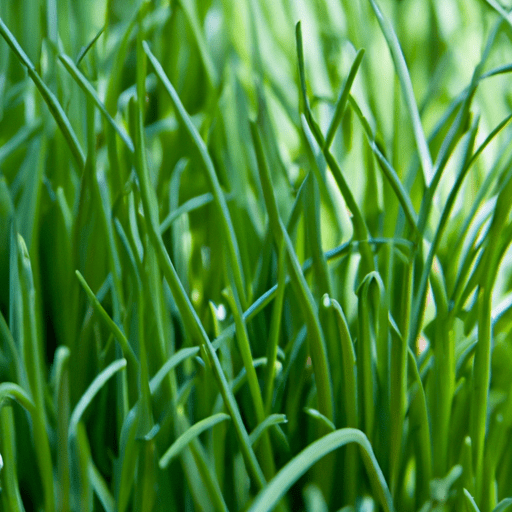The Versatile Chive: A Flavorful Herb for All Occasions
Chives are a fascinating herb that not only add a burst of flavor to your favorite dishes but also pack a nutritional punch. These slender, green stalks belong to the same family as onions, garlic, and leeks. With their delicate onion-like taste and vibrant appearance, chives have become a staple ingredient in kitchens worldwide. Join us as we dive into the wonderful world of chives, exploring their taste, common uses in cooking, nutritional value, as well as some interesting history and facts.
Taste and Aroma
Chives have a mild, onion-like flavor with a subtle hint of garlic. Often described as delicate and refreshing, their taste is less overpowering than regular onions, making them a versatile ingredient suitable for various recipes. When cooked, their flavor mellows down, adding a pleasant aromatic touch to your dishes. Chives are also known for their crisp texture, providing a pleasant crunch when used as a garnish.
Culinary Uses
Chives are a popular addition to numerous culinary creations, enhancing both the taste and presentation of a dish. This versatile herb can be used in various ways:
1. Garnish: Chopped chives sprinkled on top of soups, salads, or omelets bring a burst of freshness and visual appeal to the plate.
2. Seasoning: Whether you’re preparing savory dips, creamy dressings, or delicate sauces, chives can be used as a natural seasoning, infusing your dishes with their mild onion-like flavor.
3. Compound Butter: Whip some chopped chives into butter, and you’ll have a delectable spread to enhance the flavor of bread, grilled seafood, or roasted vegetables.
4. Stews and Casseroles: Add chopped chives to your favorite stews, casseroles, or stir-fries during the final stages of cooking to preserve their vibrant color and add a subtle onion taste.
5. Baking: Surprise your taste buds by incorporating chives into biscuits, scones, or savory muffins, bringing a unique twist to your baked goods.
Whether used as a primary ingredient or a finishing touch, chives always manage to elevate a dish, making it both visually enticing and flavorful.
Nutritional Value
Beyond their delightful taste, chives are packed with essential nutrients, making them a healthy addition to any meal. Here are some notable nutritional benefits:
Vitamin Rich: Chives are an excellent source of vitamin K, essential for blood clotting and bone health. They also contain vitamins A and C, supporting immune function and promoting healthy skin.
Mineral Boost: Chives offer a good dose of minerals like potassium, calcium, and manganese, contributing to proper nerve function, bone health, and metabolism.
Antioxidant Properties: Loaded with antioxidants, chives help combat free radicals in the body, reducing the risk of chronic diseases.
Low in Calories: A serving of chives contains only a few calories while providing valuable nutrients, making them an ideal choice for those aiming to maintain a balanced diet.
History and Fun Facts
Chives have been cultivated and enjoyed for centuries across different cultures. Here are some intriguing history and fun facts about this beloved herb:
Ancient Roots: Chives have a long history dating back to ancient China, where they were believed to have medicinal properties and were used to treat various ailments.
A Symbol of Spring: In ancient Rome, chives were associated with spring and were used in religious ceremonies to honor the season’s renewal.
Chopped for Monarchs: During the Middle Ages, chives were widely used in European royal kitchens due to their delicate flavor and ornamental appeal.
Space Herb: Chives made their way to space in 1985 when Chinese scientists successfully grew them aboard a space station, making them the first herb to be cultivated outside Earth’s atmosphere.
Chives, with their delicate taste, vibrant color, and nutritional benefits, are a true gem in the culinary world. From garnishing to seasoning, they play a versatile role in a variety of dishes, bringing freshness and aroma to the table. So why not experiment with chives in your next culinary endeavor? Allow this flavorful herb to tantalize your taste buds and add a touch of elegance to your creations.
Whether you’re an experienced home cook or just starting your culinary journey, chives are an ingredient worth exploring. Their history, versatility, and health benefits make them a must-have herb in any kitchen. So, next time you’re searching for a delicious and fragrant addition to your meal, reach for the wonderful world of chives!
Chives
Origin: Chive, scientifically known as Allium schoenoprasum, is a close relative of onion, garlic, and shallots. It is native to Europe, Asia, and North America.
Common Uses: Chives are widely used as a fresh herb in various cuisines around the world. They add a mild onion-like flavor and a subtle hint of garlic to dishes. Chives are commonly used as a garnish for salads, soups, and vegetable dishes. They are also a key ingredient in recipes like chive-infused vinegar, compound butter, and creamy sauces.
Nutritional Benefits: Chives are packed with essential nutrients. They are a good source of dietary fiber, vitamin K, vitamin C, and vitamin A. Chives also contain minerals such as potassium, calcium, magnesium, and iron. Additionally, they are low in calories and high in antioxidants.
Unique Properties: One unique property of chives, particularly their leaves, is their medicinal uses. They have been traditionally used for their diuretic, antiseptic, and anti-inflammatory properties. Chives are also known for containing a compound called allicin, which is believed to have antimicrobial benefits.
Historical Significance: Chives have a long history of culinary and medicinal use. They have been cultivated for over 5,000 years and have been mentioned in ancient texts and folklore. Chives were highly valued by ancient Romans and Greeks for their medicinal properties. In Chinese traditional medicine, chives have been used to improve digestion and stimulate appetite.
Remember to always consult with a healthcare professional or qualified herbalist before using herbs for medicinal purposes.




Use the share button below if you liked it.
It makes me smile, when I see it.